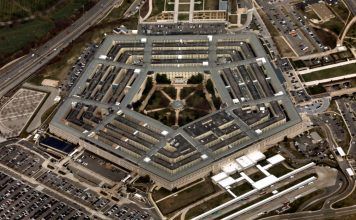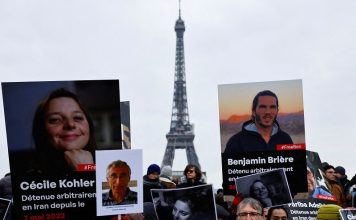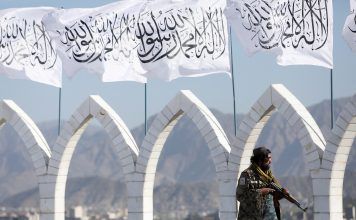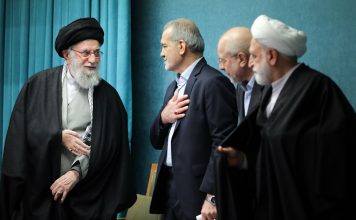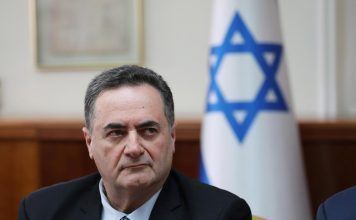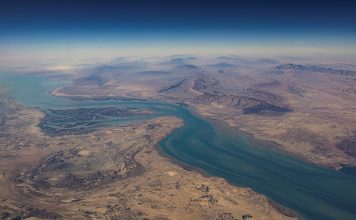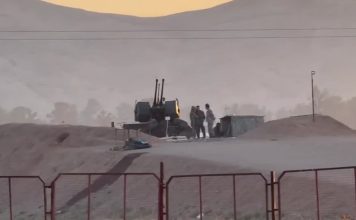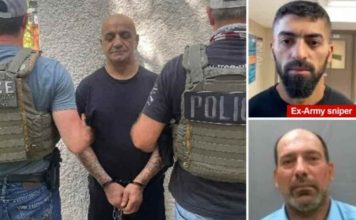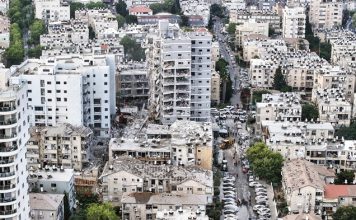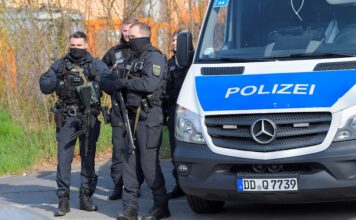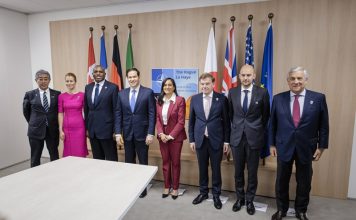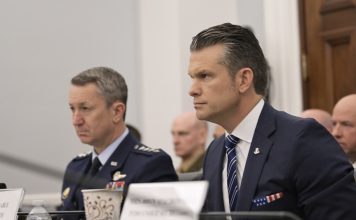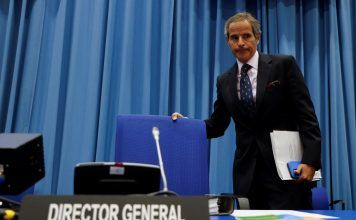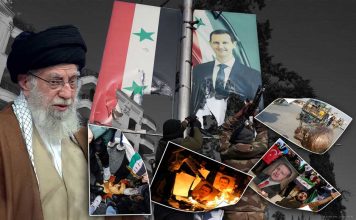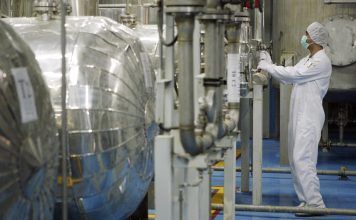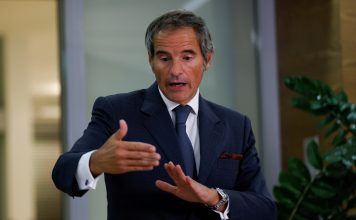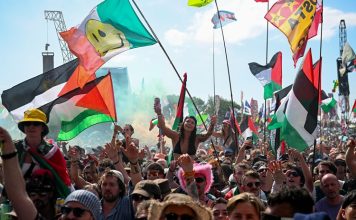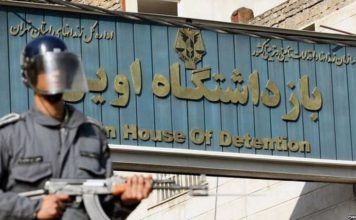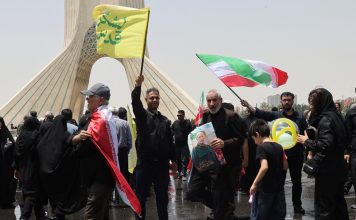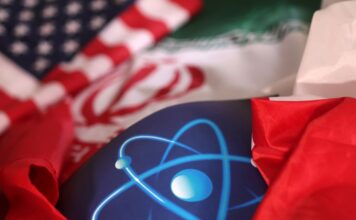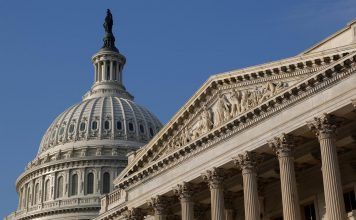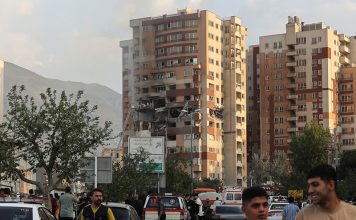By Michel Taubmann*
Reza Pahlavi – the eldest son of the Shah of Iran, and a staunch adversary of the Islamic Republic of Iran — has given a wide-ranging interview to the French quarterly Politique Internationale.
Published in the Summer 2023 issue of the publication, the interview was conducted by Michel Taubmann.
[aesop_image img=”https://kayhanlife.com/wp-content/uploads/2023/09/Picture1.jpg” panorama=”off” credit=”Prince Reza Pahlavi./” align=”center” lightbox=”on” captionsrc=”custom” captionposition=”left” revealfx=”off” overlay_revealfx=”off”]
The following is a condensed version of the interview, translated from French. The full translation is attached at the end of this article.
Last April, you made a historic visit to Israel, the first visit by an Iranian dignitary since 1979. The Islamic Republic has long contested Israel’s right to exist. What were the objectives of your visit?
My compatriots and I have long expressed our sympathy to Israelis and Jews around the world. Conversely, the Islamic Republic has placed anti-Semitism at the heart of its ideology, to the point of questioning the veracity of the Holocaust. This trip had to be made. The ‘Woman, Life, Freedom’ revolution underway in Iran, and the outpouring of support from Israel and the world’s Jewish communities, have made the circumstances even more favorable.
Israel is a democracy and the Iranian people are also fighting to establish a democracy. The region’s democrats need to talk to and support each other.
It was the message of finding an alternative to war that I brought with me on my trip to meet with Prime Minister Benyamin Netanyahu. The world is not condemned to choosing between the Iranian bomb and the bombing of Iran. There is the path of the people, the only path capable of changing things and enabling a significant de-escalation.
What was the most poignant moment of your visit?
The most poignant moment, and the most trying, was the visit to Yad Vashem. No sane person can deny that the Holocaust took place, and words fail me in describing what I felt during the visit. There’s something terrifying about hatred leading men to use bureaucratic methods to organize the extermination of an entire people. It is our duty to teach the younger generations that we must continuously combat hatred.
You are undoubtedly the best-known opponent of Iran’s Islamic regime. Are you the leader of the democratic opposition? How do you see your role?
My role has always been clear, and I will continue to play it: I act to unite the Iranian people around democratic and secular values. I endeavor to use my status and my personal history to amplify their voice, encouraging all democratic forces to come together. I will continue to do as much as I can until the day that Iran is free and that Iranians have voted for a democratic constitution via a referendum. On that day, my mission will be accomplished.
Israel is the only country in the world whose right to exist is denied by another country, namely the Islamic Republic. Israelis of all persuasions are determined to prevent Iran from acquiring nuclear weapons. How would you react in the event of an Israeli military operation?
I unequivocally condemn any scenario involving war. War is not the solution. It will only add misery to existing misery. I am staunchly opposed to war, first and foremost, and as a matter of principle. For me, Iran’s territorial integrity and sovereignty are intangible, non-negotiable.
This contrasts with the attitude of the Islamic regime, which hands over the territorial waters of the Caspian Sea to Russia and signs unequal treaties with China. I am so viscerally attached to the integrity of our borders that in 1980, at the age of 19, I sent a telegram to Ayatollah Khomeini’s general staff to volunteer my services as a trained fighter pilot. I was eager to defend Iran against Iraqi leader Saddam Hussein’s aggression but my telegram was left unanswered.
I have doubts about the effectiveness and success of an [Israeli] military operation. Many nuclear facilities are deep underground and therefore safe from attack. Such an operation would also not prevent the regime from continuing to provoke instability by providing arms and money to terrorist groups. The Israelis themselves are preparing for a possible war on five fronts: Hezbollah in Lebanon, the Revolutionary Guards’ Al-Quds force in Syria, Hamas and Islamic Jihad in Gaza and a Palestinian uprising in the West Bank, and even riots by the Arab population within Israel itself.
The prospect of war must be set against that of regime change in Iran. We must bet on the Iranian people and trust them. The Iranians are our best army, a peaceful army, against the power of the ayatollahs! There are many cracks in this regime today. The “reformers” are openly challenging the system. The conventional army does not take part in the repression. Qom’s clergy is divided: many clerics are worried that the mosques will be deserted by a population that now equates Islam with the Islamic Republic, and therefore with oppression. And even the regime’s praetorian guard, the Revolutionary Guards Corps, is beginning to reveal its divisions.
I’m in constant contact with political, religious and military leaders. But worse than being ineffective, military intervention would have a disastrous effect on the democratic movement in general: the regime would seize the opportunity to increase repression and silence all who might rebel.
Iran must not be attacked. The international community must not give the Islamic regime the opportunity to portray itself as a defender of territorial integrity. I repeat: we must trust the Iranian people. The Iranians are the bravest foot soldiers against the Islamic Republic. They continue to prove this on a daily basis.
What if Iran attacked Israel through Hezbollah, which already has 150,000 missiles aimed at Israeli cities? Would you support an Israeli response in self-defense?
Every state has the right to defend itself. But here again, the best way to avoid
escalation in the region is to isolate the Islamic Republic and support the Iranian people. My compatriots have already paid a heavy price for many years. They deserve to be trusted. A change of regime in Iran would put an end to the support of terrorist organizations such as the Lebanese Hezbollah, the Palestinian Islamic Jihad and Hamas.
Was the Joint Comprehensive Plan of Action (JCPOA), the Iran nuclear deal signed in 2015, a positive development? Could it have led the country to “open up” and ultimately liberalize?
The Obama administration made the same gamble as the Clinton administration did when the United States accepted China into the World Trade Organization: they thought economic cooperation would ultimately lead to political liberalization. In both cases, the obvious failure of this approach, which is based on the idea that dictators can be tamed, is undeniable.
It is also unfortunate that in 2015, the five permanent members of the Security Council plus Germany agreed to compartmentalize the problems presented by the Islamic Republic. Consequently, the diplomats in charge of the negotiations only dealt with nuclear fuel enrichment.
The Islamic Republic does not act as a guarantor of the national interests of Iran and Iranians. The regime is corrupt and expansionist, favoring apparatchiks and friends of the state. When the JCPOA was signed, the Islamic Republic benefited from almost $100 billion in economic windfall — without the Iranian people seeing their living conditions improve in any way. On the contrary, this money has been used to finance the security apparatus and foreign operations in Syria, Lebanon, Yemen and elsewhere.
Did you agree with President Trump’s decision to have the U.S. withdraw from the JCPOA in 2018?
My overall position has always been that an agreement is better than no agreement, even if the JCPOA seemed unsatisfactory to me. The U.S. withdrawal, without a proposal for a constructive alternative, represents a failure. It served as a pretext for the Islamic regime to free itself from all commitments and resume its nuclear arms race.
The international community, and Europe in particular, have a decisive role to play. First and foremost, they need to place the Islamic Revolutionary Guards Corps on the European list of terrorist organizations to help cut off funding to a well-known, violent, mafia-like organization.
Incidentally, only the organization’s senior officers benefit from its financial resources. The ordinary soldier lives modestly and is sometimes forced to take a second job. His loyalties are based on the status that he is accorded and the salary that he is paid. In any case, I think a general strike is necessary: it will hit the regime even harder.
A general strike to bring down the regime?
A general strike would accelerate the fall of the regime. This is certain. But going on strike in a country with an already moribund economy is difficult for workers. Skipping work means giving up a very modest salary.
That’s why I’d like to see the regime’s frozen assets confiscated and redirected to an international fund to support the strikers. An Iranian strike could be financed purely with funds of Iranian origin — funds that therefore belong to our people. Not a penny would be asked of any foreign state or foreign private interest.
In 2009, the “Green Movement” led people to believe that “the hour of choice” had arrived in Iran. Fourteen years later, despite a succession of revolts (in 2017, 2019 and 2022), the regime is still in place. What has changed in 14 years that gives you hope that the Islamic Republic is coming to an end?
In 2009, when the “reformist” candidate Mir Hossein Mousavi won the most votes in the presidential elections, the regime enthroned the ultra-conservative Mahmoud Ahmadinejad, who had finished third. Iranians were shocked that the Islamic Republic did not play by its own rules. For a long time, they had been led to believe that the Constitution held the key to change, and that elections were the only way to achieve it.
By contrast, the revolts of 2017 and 2019 were socially motivated. The regime’s indifference to the relentless rise in the cost of living led to riots among the poorest sections of the Iranian population. This, in turn, caused the regime to lose its social base.
The years of President Hassan Rohani’s supposedly “moderate” presidency between 2013 and 2021 only strengthened the regime to the detriment of Iran’s national interests. I want to underscore that the Iranian people have not benefited from the economic fallout of the Vienna nuclear deal. The tens of billions of dollars released when the sanctions were lifted were immediately reinvested in the war in Syria and in other external operations of aggression, rather than in the Iranian economy.
Since September 2022, Iranian society has been rising up. The regime has succeeded in rallying all sectors of the population against it: women, who are legally considered inferior; ethnic minorities, who are scorned for their idiosyncrasies; bona fide reformers, who no longer believe in reform; the middle class, impoverished by an annual inflation rate of more than 70 percent; young people, who are unable to find work. The list goes on. There are suspicions of corruption at every level of the state, environmental damage, not to mention Covid, which, due to disastrous management, cost hundreds of thousands of lives (though this toll has been carefully concealed by official statistics).
Iranians are increasingly aware that the only viable solution is to eradicate the root of the evil, namely the Islamic Republic, and establish a democratic, secular regime in its place.
What sets the ‘Woman, Life, Freedom’ movement apart from previous revolts?
The ‘Woman, Life, Freedom’ revolution is the culmination of a long political and societal process. The other revolts were the precursor to this one. It was only in 2019, with the uprising against mounting energy prices, that the protests became widespread. The year 2019 was a pivotal movement because since then, Iranians no longer mobilize based on their social or professional affiliation. They now stipulate that all of their demands be met, even those that do not directly concern them. The mobilization of men in support of women’s rights is a perfect example of this.
Let’s look for a moment at the sociology of the ‘Woman, Life, Freedom’ movement. It began in Kurdistan, in the town of Saqqez, the hometown of Mahsa Jina Amini [the 22-year-old woman who died in the custody of the morality police last year after being detained for breaching hijab laws]. At her funeral, women removed their headscarves, encouraged by the men. The men recognized that their own freedom is dependent on that of their wives and daughters. Very quickly, the movement spread throughout Iran as a message of solidarity. We saw young people, sometimes barely teenagers, protesting in their schools, and 12 year-old girls chanting “Bassidji, go away!” to a militiaman who had come to praise the Islamic Republic.
Isn’t there a risk that the Islamic Republic will go even further in its oppression of the Iranian people, like the Syrian regime?
[President] Bashar al-Assad is a tyrant, but he is not alone in committing atrocities against the Syrian people. The Syrian tragedy is largely due to the intervention of the Islamic Republic. Since 2011, it has provided strategic and logistical support to Damascus. Experts estimate that this support amounts to between $5 and $15 billion a year in direct and indirect aid (arms, munitions, foodstuffs, hydrocarbons, etc.). Imagine what this represents for an economy that is one-tenth the size of France. Tens of thousands of soldiers from the Revolutionary Guards Expeditionary Force, Hezbollah and Afghan Shiite militias are still active in Syria. Further proof of Teheran’s involvement: between 12 and 15 Iranian generals have died on Syrian territory.
The Islamic Republic has been martyring the Iranian people since 1979 and has exported this deadly know-how wherever it could in the Middle East. Opponents are raped in prisons, women are beaten to death, schoolgirls are gassed. Martyrdom is currently underway.
What are the concrete steps needed to transition from an Islamist dictatorship to a parliamentary, secular democracy?
First and foremost, the security forces must disobey the regime and force its dignitaries into exile or else face arrest. All democratic and secular political forces would then have to agree to form a unified national government that would include all components of Iranian society.
This government will then have three essential missions. First, it will need to organize an election for a Constituent Assembly that is responsible for presenting a draft Constitution in line with the 1948 Universal Declaration of Human Rights. In this respect, one idea is particularly close to my heart: Our history shows us how the absence of a supreme court can lead the country towards authoritarianism. With such a body, the 1953 crisis between my father the Shah and his prime minister Dr. Mohammad Mossadegh could have been avoided. By strengthening law enforcement, we will reinforce democracy. No government would be able to enact laws that conflict with the separation of powers, the monitoring of government action and citizens’ rights. This is fundamental to the democratization of our country.
Next, the unified national government would need to take emergency measures to restore stability, including: equal rights for all citizens, inflation reduction, anti-corruption efforts, the reintegration of the security forces into a regular state apparatus, the rehabilitation of all political prisoners, an unambiguous ban on all acts of torture, and the suspension of all death sentences pending the outright abolition of capital punishment.
Finally, this transitional government will have to work to rebuild trust with the international community. This implies suspension of the military nuclear program and a strict return to the Treaty of Non-Proliferation, as has been done by all other responsible actors in the international community.
By following this process, I believe that Iran could have a Constitution guaranteeing a secular democracy in less than two years. But we need to go further. Democracy is not limited to elections and the exercise of power by the majority. The opposition must have rights, it must be able to propose legislation, have equal speaking time in the media and be able to request the investigative commissions in the event of government dysfunction. It must also be able to submit draft legislation to a Supreme Court, which would be responsible for verifying conformity with the Constitution and the Universal Declaration of Human Rights.
Are there any forces within the Islamic Revolutionary Guard Corps or the army that are ready to commit to a transition process?
Many members of the Islamic Revolutionary Guard Corps are aware that the regime is trapping them in a vicious cycle. Their illusions were shattered when they realized that the regime was using them and was not going to fulfil its promises of peace and prosperity. Families of former Islamic Revolutionary Guard Corps who were wounded in the war against Iraq, or who had lost a father or son, were abandoned and shown no gratitude from the regime. They were left behind. Justice must be done for them too.
One of the main problems in Iran is corruption. How can it be combatted?
Corruption is endemic in the Islamic Republic. It is imperative that we combat this plague because it is damaging our society and impoverishing our population.
Iran’s natural resources, such as oil and gas, are a matter of national sovereignty. They should be the property of the entire nation, not the printing press of the Islamic Revolutionary Guard Corps. The Central Bank of Iran must be independent, so that it can’t be held hostage by frivolous economic policies that generate inflation and clientelism. Finally, we need to overhaul our judiciary system to ensure its independence, and pass laws that will provide a framework for the actions of every player in the political, economic and social spheres.
Is it realistic to think that Russia and China would let Iran leave their sphere of influence?
Iran must no longer be subservient to foreign powers, just as it must no longer interfere in the domestic affairs of other sovereign nations. Undoubtedly, Russia and China are major world powers. My wish is to maintain balanced relations based on mutual respect for each other’s sovereignty. There is no reason for a democratic Iran to cut itself off from China, the biggest consumer of natural resources. Nor should it avoid coordinating oil production with Russia, as Saudi Arabia already does, occasionally.
Iran must adopt a foreign policy that serves its own interests. My country’s geographical position, paired with its assets, means that it is destined to play an important role in the global economy. We have always traded with both the East and the West. Diplomatically, Iran must become a stabilizing power, not a factor of instability in the region.
What role will the current repressive forces – the Islamic Revolutionary Guard Corps, the Basijis – play in a democratic transition? What role will the army play?
The role of the army is to protect a country’s borders, and that of the police is to maintain public order and personal safety. The Islamic regime has turned these forces into tools of its ideology. The Basij monitor compliance with Sharia law in Iranian society, and the Islamic Revolutionary Guard Corps intervenes in conflicts abroad to export Islamist ideology.
Non-violent resistance and civil disobedience are the best ways to win over the security forces. These forces are part of the people and, therefore, part of the interim solution. We won’t be able to try every single civil servant in the armed forces, nor would it make sense to do so. Senior commanders and their subordinates should not be treated in the same way. As far as rank-and-file police officers are concerned, the transition must involve them in a process of national reconciliation, similar to what was done in South Africa: a “Truth and Reconciliation” commission should be established to encourage national dialogue.
Have you ever thought of giving up politics?
Never! I could have refused to involve myself in politics and decided that the 1979 Revolution prevented me from playing any role. But this was never an option for me. Iranians may have turned their backs on my family in 1979, but that doesn’t mean we’ve turned our backs on them. It’s my duty to always stand by them.
I know they never wanted the horrors that Khomeini inflicted on them. My fondest memories are in Iran, and I am first and foremost an Iranian citizen. I’m part of the Iranian people and we are equals. I want to live freely in my country alongside my compatriots, with my culture and traditions. My only ambition is to contribute to my country’s transition to democracy. I will always be a defender of fundamental liberties in Iran. That outcome alone would make me content!
* Michel Taubmann is a journalist who formerly headed the Paris newsroom of the European TV network ARTE and was editor-in-chief of the magazine Le Meilleur des Mondes. He is now the publisher of Éditions de l’Archipel and a political columnist at I24News. His publications include: La Bombe et le Coran. Une biographie du Président Mahmoud Ahmadinejad (Editions du Moment, 2008); L’histoire secrète de la révolution Iranienne (in collaboration with Ramin Parham, Denoël, 2009); and Iran: l’heure du choix (a book of interviews with Reza Pahlavi, Denoël, 2009.)
Link to the French interview: Politique Internationale, N°180, Summer 2023.
[aesop_document type=”pdf” src=”https://kayhanlife.com/wp-content/uploads/2023/09/Politique-Internationale-ENG-full-w.-highlights.pdf” title=”Read the full translation here” caption=”Politique Internationale N°180, Summer 2023″ download=”on”]
Prince Reza Pahlavi : ‘The Alternative to the Islamic Republic is the Iranian nation’


